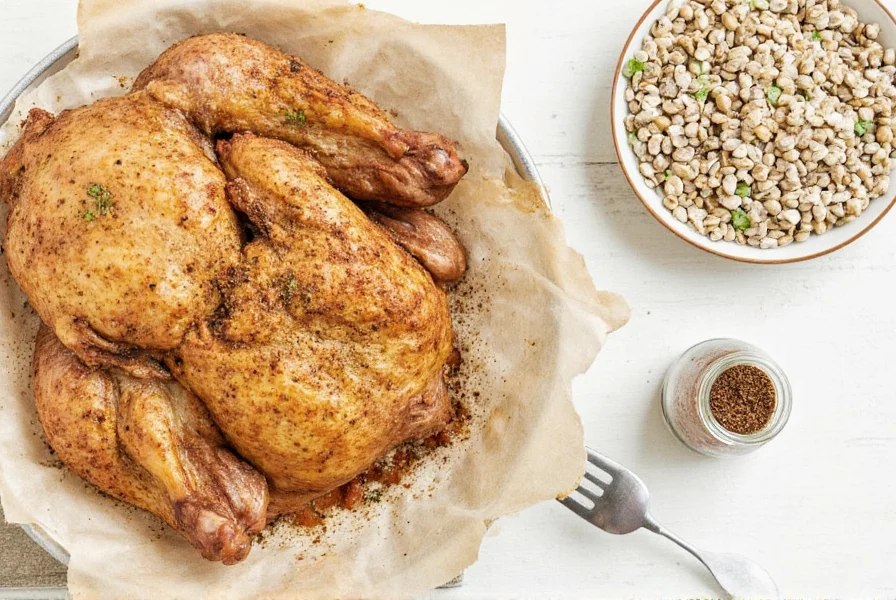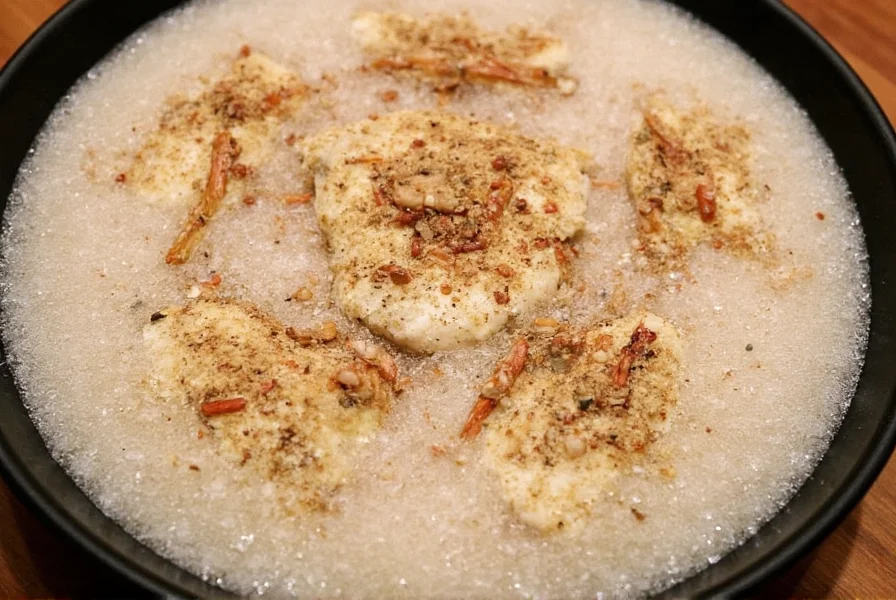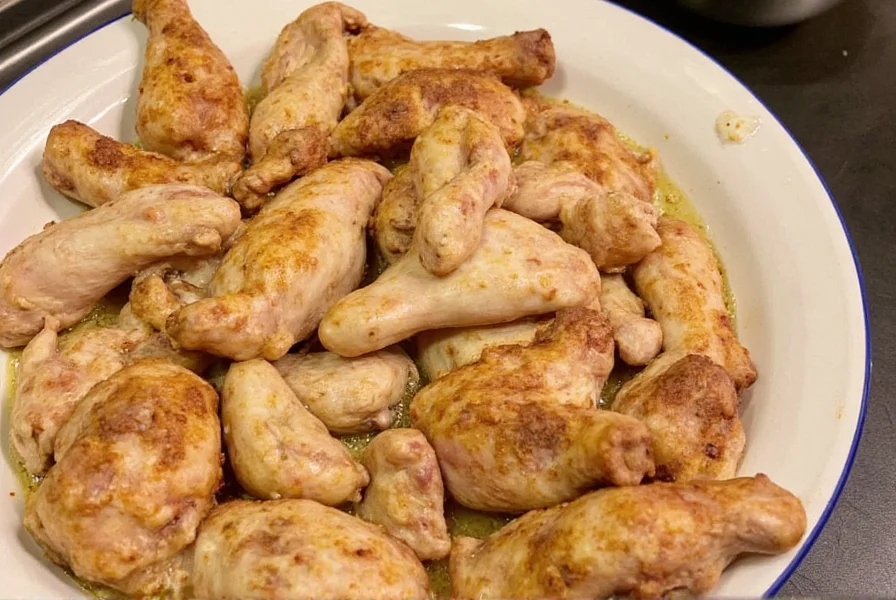Table of Contents
Introduction to Dry Brining
To dry brine chicken for juicy, flavorful results, follow these simple steps: Rub a precise salt and spice mixture directly on the chicken, then refrigerate for 4-24 hours before cooking. This technique enhances moisture retention and flavor without messy soaking.
How Dry Brine Works
Dry brining works through osmosis: salt draws moisture from the chicken's surface, then reabsorbs it with dissolved seasonings. This process breaks down proteins, resulting in tender, juicy meat. Unlike wet brining, dry brining concentrates flavors directly on the meat surface and creates crispier skin by reducing excess moisture.
The Benefits of Dry Brine for Chicken
- Juicier Meat: Retains up to 30% more moisture than unbrined chicken during cooking.
- Enhanced Flavor: Seasonings penetrate deeper than surface-only seasoning.
- Crispier Skin: Reduced surface moisture allows for perfect browning when roasting or grilling.
- No Mess: Eliminates the need for large containers or liquid solutions.
- Time-Saving: Prep in minutes, then cook when convenient.
Practical Tips for Using Dry Brine
- Use Kosher Salt: Its coarse texture ensures even distribution and avoids over-salting.
- Apply 12-24 Hours Ahead: For whole chickens, refrigerate 12-24 hours; for breasts or thighs, 4-8 hours.
- Pat Dry Before Cooking: Remove surface moisture with paper towels for maximum crispiness.
- Adjust for Chicken Size: Use 1 tsp kosher salt per pound of chicken for balanced seasoning.
- Experiment with Spices: Add 1/2 tsp smoked paprika and 1/4 tsp garlic powder per pound for depth.
| Chicken Part | Dry Brine Time | Salt Amount | Recommended Spices |
|---|---|---|---|
| Whole Chicken (4 lbs) | 12-24 hours | 1 tbsp kosher salt | 1 tsp garlic powder, 1 tsp smoked paprika, 1/2 tsp black pepper |
| Chicken Breasts (per piece) | 4-8 hours | 1 tsp kosher salt | 1/2 tsp garlic powder, 1/2 tsp paprika, 1/4 tsp black pepper |
| Chicken Thighs (per piece) | 6-12 hours | 1/2 tsp kosher salt | 1/4 tsp garlic powder, 1/4 tsp paprika, pinch black pepper |

Frequently Asked Questions About Dry Brining Chicken
- How long should I dry brine chicken?
- Dry brine whole chickens for 12-24 hours, chicken breasts for 4-8 hours, and thighs for 6-12 hours. Never exceed 48 hours to avoid over-salting.
- Can I over-dry brine chicken?
- Yes. Exceeding 48 hours makes chicken overly salty and alters texture. Always follow time guidelines based on cut size.
- Do I need to rinse chicken after dry brining?
- No. Rinsing removes surface seasoning and prevents crispy skin. Simply pat dry before cooking.
- Can I use table salt instead of kosher salt for dry brining?
- Yes, but reduce quantity: 1 tbsp kosher salt = 1.5 tsp table salt. Table salt is denser and can over-salt easily.
- Does dry brining work for frozen chicken?
- No. Always thaw chicken completely before dry brining. Frozen chicken prevents even salt absorption.
- Can I dry brine other meats besides chicken?
- Yes. Turkey (12-24 hours), pork chops (4-12 hours), and beef steaks (1-4 hours) work well. Adjust salt based on thickness.
Ingredients and Measurements
For perfect dry brine, use these precise measurements:
- Kosher Salt: 1 tsp per pound of chicken (e.g., 4 lbs = 4 tsp)
- Garlic Powder: 1/2 tsp per pound for savory depth
- Smoked Paprika: 1/2 tsp per pound for smoky notes
- Black Pepper: 1/4 tsp per pound for subtle heat


Conclusion
Dry brining transforms chicken with minimal effort: precise salt and spice measurements ensure juicy, flavorful results every time. This technique is backed by culinary science and used by professional chefs for consistent outcomes. Start with the recommended measurements, experiment with spices, and enjoy restaurant-quality chicken at home.











 浙公网安备
33010002000092号
浙公网安备
33010002000092号 浙B2-20120091-4
浙B2-20120091-4